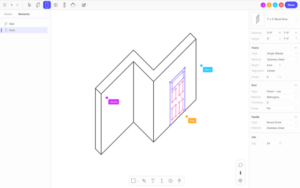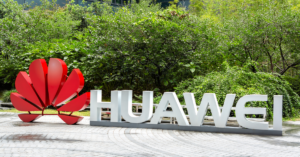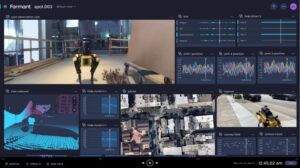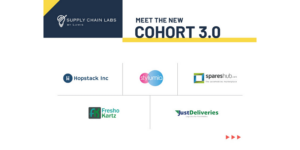With a labour market still reeling from COVID-19 and a food industry struggling to keep its emissions in check while feeding the growing populace, it is clear we need innovative minds to step up. During the Second Generation of the Blue Tulip Awards, that is exactly what happened. The winners in the Food & Water theme and the Education & Employment theme have what we need. Meet MEZT and Skilllab.
MEZT enables circular farming
Talk about timing for the winners of the Food & Water theme in the Blue Tulip Awards. The country of The Netherlands is struggling with a nitrogen crisis, paralysing building projects and sending farmers into a rage. The issue, high levels of nitrogen emissions, focuses mainly on farmers, as their animal waste tends to produce a lot of it. That prompts the government to new measures, making the life of farmers harder and everybody unhappy.
Enter MEZT. Adriaan Lieftinck and Edward Sibeijn further developed a patented idea from TU Delft, which detailed how to clear wastewater from harmful substances by using bi-polar electrodialysis technology. Together with the University of Wageningen, they discovered this could also be applied to manure. Better yet, they were able to successfully extract nitrogen (ammonia), potassium and phosphate from the waste. These are also the core minerals for fertilizer.
No emissions, free fertiliser and green energy
It meant Lieftinck and Sibeijn figured out a win-win situation. Not only are they able to prevent harmful substances from reaching nature, a way of resolving the Dutch crisis, their innovation also returned the core-ingredients for any fertilizer, no matter the crop, soil or the season. They are now looking at a way to turn the waste into energy, which would make the entire solution circular.
“We’ve tried and tested the process on a laboratory scale. For that, we’ve been collecting manure all over the country. Now we’re building a device on the scale of an actual farm.” Lieftinck says the prototype will have the shape of a sea container, which holds all the MEZT-tech. “In April this year, it will be ready for a first test, with which we want to show it’ll actually work on the scale we need. The goal is to obtain subsidies for the first batch of products and build more test sites. In the second half of 2021, we want to scale up further.”
‘Fraction of the costs’
As the current emissions are a deeply politicised problem in The Netherlands, Lieftinck is not only hoping for financial support from the government. It would also help if the government would take a closer look at the rules and regulations surrounding farmers’ emissions, he says. “A lot of money is being spent on buy-outs of farmers. We think that with our technology, farmers can continue their work while we spend a fraction of the cost of buy-outs.”
MEZT-team’s innovation has not gone unnoticed. There’s a long list of Dutch farmers, waiting to work with MEZT. And news of what they are doing has already crossed the borders. Lieftinck says he sees potential interest from Germany or Belgium, as well as from Canadian farmers. “We are not the only country with this problem. It’s a matter of time before the rest of the world focuses on emissions of its farmers.” If that happens, Lieftinck wants his innovation in as many hands as possible.
Skilllab wins Education & Employment
Getting the innovation in as many hands as possible, is also what Ulrich Scharf aims to do. His company Skilllab won the Blue Tulip Award in the Education & Employment theme. With a thoroughly disrupted job market due to COVID-19, there is room for a new approach to matching the right person with the right job. “Our goal is to ensure that career support is available for everyone at a low-cost point”, says Scharf. He is well on the way, with clients in 15 different countries.
Skilllab offers that by employing artificial intelligence to help job-seekers emphasise their skills, not their degrees or diplomas. This helps everyone better understand how their skills and knowledge relate to the labour market, making it easier to find the right available job.
Creating an inclusive labour market
Skilllab’s innovation arrives at a critical moment in time, says Scharf. “Many people lost their jobs due to COVID. The people hit hardest were already the ones most vulnerable. Many service sector jobs got decimated. We need to ensure that our economic recovery is inclusive and benefits everyone.”
To do so, Skilllab built an artificial intelligence that interviews people looking for a job. The goal is to understand what people can do based on their competences and skills, not on which school they went to. Based on the generated skill profile, Skilllab helps job seekers navigate the labour market. Once the job seeker found a job they like, Skilllab automatically generates a fitting, bespoke CV in any of 27 available languages.
Setting refugees up for a job
The language part is important, as Skilllab works with an international audience, says Scharf. “We realised that we can be most impactful by supporting refugees integrating into EU labour markets. Only about 20% of all degrees and qualifications are formally accepted by Institutions. This creates the need for new approaches to capture and express the experience and skills of an individual.”
COVID added another sense of urgency to what they were doing. “These days due to the pandemic, the amount of people that need support to find a new path to employment has been growing dramatically. In the short-run, active career support basically frozen due to lockdowns. In the medium to long-run, everyone understands we need new solutions to help people find new career pathways.”
‘Responsible use of AI’
Skilllab’s vision aligned neatly with the Blue Tulip Awards sustainability goals, as social impact and human-centred design is ingrained in the DNA of Skilllab. “This starts with the responsible use of AI. “Especially when it comes to the labour market, there are a lot of discriminatory aspects. Blindly training an AI-based system with labour market data would very likely re-enforce discriminatory behaviour. We take the ethical responsibilities of this very serious and always put the user and how they are affected by this issue first.”
Their focus on responsible innovation has certainly helped them during the awards, as they can now call themselves winners in the Education & Employment theme. The journey towards the award was just as valuable, says Scharf. “Being evaluated by such a high-profile jury was worthwhile and we met some really interesting people. The connections we formed during the process are very valuable.”
‘Blue Tulip Awards offered lots of insights’
For Lieftinck, the Blue Tulip Awards offered a lot of insights into the industry he is trying to navigate. “Especially the in-depth conversations in the last stadium of the journey. We had a mentor, with whom we walked through our proposition. Someone with a lot of knowledge from water treatment technology. He knew about all the little details and really brought us further into how we could sell ourselves and our product.”
The judges were not only swayed by the innovative nature of the product but also the impact on society it could have. Lieftinck: “What they exclusively mentioned was the broad range this technology could work on. From massive farms to the microscale, where you can think of little villages producing their own fertiliser by reusing human waste from special toilets.”
Besides that, the Blue Tulip Awards were also a great opportunity for Lieftinck to ‘shop around’ in other people’s inventions. Lieftinck remembers a conversation with someone who created a drone that monitors the status of crops. “A combination could evolve our product, with precision fertilisation, tailored to every square meter. I love that combination of ideas when you meet other innovators.”
Registration for Generation 3 is open now
Do you have an innovation that is equally impactful and innovative? One that will disrupt the world of Industry & Infrastructure, Finance & Prosperity or Climate & Energy? Then head on over to the Blue Tulip Awards’ registration page and sign up your innovation for Generation 3.
Call for startups with innovative solutions for the future cities from all over the globe.










